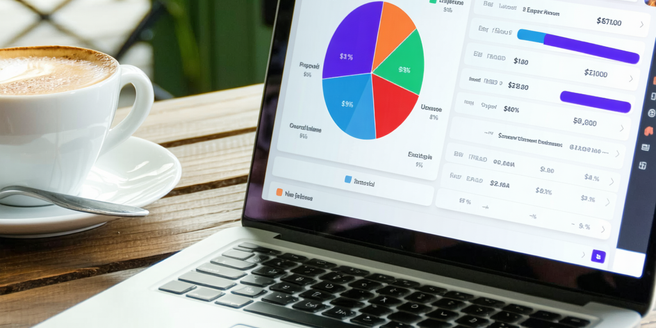
Understanding the Basics of Credit Card Budgeting
Credit card budgeting is an essential skill for managing your finances effectively. By setting realistic spending limits and monitoring your credit card usage, you can avoid unnecessary debt and improve your overall financial health. Start by analyzing your monthly expenses and identifying areas where you can cut costs. Use a budget to allocate money for essentials like rent, groceries, and utilities while setting aside funds for savings and discretionary spending. Pay attention to your credit card statements to track patterns in your spending habits. By understanding where your money goes each month, you can make informed decisions and avoid overspending. Remember, successful budgeting requires consistency and discipline, so regularly review and adjust your budget as needed to reflect any changes in your financial situation.
Top Features to Look for in Budgeting Tools
When choosing a budgeting tool, it’s essential to prioritize features that suit your financial goals. Look for tools with intuitive interfaces that allow for easy transaction tracking and categorization. Automated syncing with your bank and credit card accounts is critical to keep your budget current without manual input. Some tools offer customizable spending alerts to ensure you stay within budget limits. Another valuable feature is detailed reporting and analysis, which helps you visualize your spending patterns and identify areas for improvement. If you’re concerned about security, opt for tools that offer robust encryption and data protection. Lastly, consider tools with a community or customer support system, as they can provide valuable insights and assistance as you navigate your budgeting journey.
Comparison of Popular Budgeting Apps for Beginners
There are numerous budgeting apps available that cater to beginners looking to manage their credit card expenses. Mint stands out for its user-friendly interface and comprehensive financial tracking features. It allows users to link multiple accounts and receive personalized tips for budgeting improvement. YNAB (You Need A Budget) emphasizes proactive budgeting, offering tools to plan your spending and save for future goals. Tiller Money provides a unique solution for those who prefer using spreadsheets, enabling automatic financial updates and customization. Another option is Goodbudget, which uses the envelope budgeting method to help you allocate funds for various spending categories. Each of these apps caters to different needs, so consider your personal preferences and financial goals when choosing the best app for you.
How to Effectively Use Budgeting Tools with Your Credit Card
To maximize the benefits of budgeting tools in managing your credit card, start by syncing your accounts to capture all transactions in real-time. Set spending limits that align with your budget goals, ensuring they are realistic and sustainable. Use the categorization features to track expenses across different areas and identify where most of your money is going. Regularly review this data to make informed adjustments to your spending habits. Take advantage of alerts and notifications to avoid late payments and potential overdraft fees. Also, use reporting features to analyze trends over time, helping you understand your financial behavior better. By consistently engaging with your budgeting tool, you’ll develop a disciplined approach to using your credit card and ultimately achieve financial stability.
Tips for Staying on Track with Your Credit Card Budget
To maintain adherence to your credit card budget, begin by devising a comprehensive and realistic budgeting plan. Track your daily expenses and reconcile them with your monthly goals to prevent overspending. Utilize alert features available in many budgeting apps to notify you when nearing spending limits. Establish an emergency fund to cushion against unforeseen expenses, not a credit card reliance. Regularly reviewing your budget is key; it ensures it reflects your current financial situation and objectives. Cutting back on non-essential spends periodically can also help in redirecting funds towards savings or debt reduction. Lastly, adopting a mindset focused on financial responsibility and discipline will aid significantly in sticking to your budget. Celebrate small victories to maintain motivation and ensure continuous progress.
